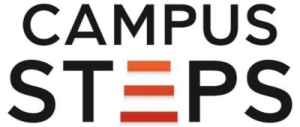 Education is important, from your early days in kindergarten all the way to the study you pursue later in life. Everyone is different though, and everyone studies for different reasons and different goals. No matter what your ultimate pursuit is though, there are a number of ways to make sure you really are getting the most out of your education.
Education is important, from your early days in kindergarten all the way to the study you pursue later in life. Everyone is different though, and everyone studies for different reasons and different goals. No matter what your ultimate pursuit is though, there are a number of ways to make sure you really are getting the most out of your education.
Choose Pathways
Sometimes the slow path is the best path. People think trying to cram as many subjects into a three-year degree is the best way to go, but this type of workload and stress may actually be hindering your education. There are a variety of other flexible pathways available today, including colleges like Evocca, as well as TAFE courses and distance learning that can develop basic skills. By starting here, you can build up your knowledge gradually in your own time.
Think Long Term
Long term goals are what everyone should have in mind when it comes to their education. What are you going to get out of this? Where will you be able to apply this knowledge? To get the most from your education, sit down and pull apart what you’re studying and compare it, point to point, with what you want to do. By doing this you will be able to more clearly see what other subjects you need to add, or what might actually be irrelevant to what you want to learn. Some subjects will always be boring, but if they are more likely to help you in the long term, do them now.
Be Practical
Yes, working towards a diploma or a degree is going to give you the qualifications you need for a career, but it rarely gives you the practical experience to push you even further ahead. Many courses now make work experience a requirement, but not all of them. You have to put yourself out there if you want to show that you’re serious about a career. Volunteer on weekends for whatever is available, whether it be admin, as a coordinator, or a coffee runner. Every piece of life and industry experience counts when it comes to getting the most from your education and furthering your career prospects.
Self Educate
The best way to discover answers is to always be questioning, researching and recording. If you don’t question you don’t learn. Read widely when you can, and not just the books or journals that have been recommended by your tutor. Do internet searches, find educational institutes, locations or industry professionals on the subject you’re studying and further your knowledge that way. You have to be willing to always take it that one step further.
Society today is becoming more educated every year. Because of this, job prospects and industry expectations are at a high, and are therefore becoming hugely competitive. Really taking an analytical approach to your education, balancing it with experience and pushing yourself to always be learning from someone or something, is what is ultimately going to get you ahead.
Have you made the most of your education? If not, what areas do you think you could have improved on? Discuss your answers below.








 Today’s topic: applying EA (early action) and ED (early decision). It’s the first week of November and those applications will be arriving at the colleges. Granted, it’s a quick process to complete once school begins in the fall, but there are some good reasons to take advantage of these options.
Today’s topic: applying EA (early action) and ED (early decision). It’s the first week of November and those applications will be arriving at the colleges. Granted, it’s a quick process to complete once school begins in the fall, but there are some good reasons to take advantage of these options.
